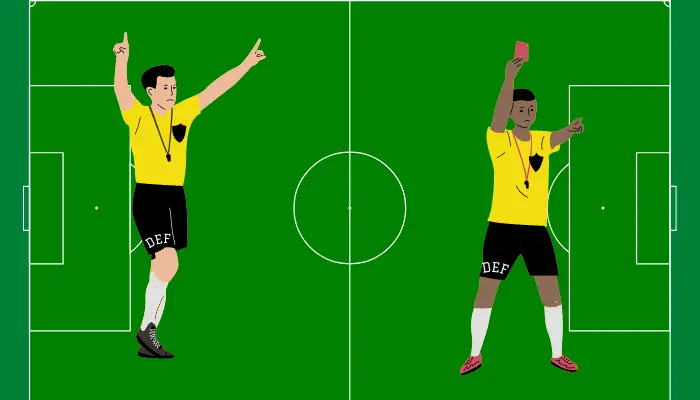Football, the beautiful game, has always been a sport of passion, skill, and strategy. However, in recent years, the impact of technology has been nothing short of revolutionary, transforming almost every aspect of the game, from training methodologies to fan experiences. This article will delve into the multifaceted influence of technology on modern football, exploring its benefits, challenges, and the future implications for the sport.
Revolutionizing Training and Performance Analysis

Technology has empowered coaches with unprecedented tools to analyze and optimize player performance. High-definition cameras capture every detail of training sessions and matches, enabling coaches to break down individual and team tactics with minute precision. This data-driven approach allows for:
Personalized Training Plans
By analyzing individual player strengths and weaknesses, coaches can tailor training programs for maximizing performance, injury prevention, and skill development. This includes:
- Monitoring player workloads and fatigue levels to prevent overtraining and injuries
- Identifying areas for improvement and creating targeted drills to address those needs
- Tracking player progress and adjusting training plans accordingly
Advanced Tactical Analysis
Software can track player movements, identify passing patterns, pinpoint tactical flaws, and predict opponents’ strategies. This empowers coaches to develop countermeasures, refine formations, and make informed substitutions during matches. Key benefits include:
- Identifying and exploiting opponents’ weaknesses
- Optimizing team formations and in-game tactics
- Monitoring the effectiveness of specific strategies and making real-time adjustments
Data-Driven Scouting and Recruitment
The wealth of data generated by modern football technology has revolutionized the scouting and recruitment process. Clubs can now analyze player statistics, physical attributes, and tactical tendencies to identify talented prospects with greater accuracy. This has led to:
- More efficient talent identification and evaluation
- Data-driven decision-making in player acquisitions
- Reduced risks and increased returns on investments
Injury Prevention and Rehabilitation
Wearable devices and advanced medical imaging technologies have transformed the way clubs approach player health and wellness. By monitoring physical metrics, coaches and medical staff can:
- Detect and prevent potential injuries before they occur
- Develop personalized rehabilitation programs for injured players
- Optimize recovery times and ensure a safe return to play
See more: https://kubet777.club
Enhancing the Fan Experience

Technology has also had a profound impact on the way fans engage with the sport, revolutionizing the stadium experience and expanding the reach of the game worldwide.
Immersive Stadium Experiences
Stadiums are now equipped with advanced audiovisual systems, interactive displays, and virtual reality (VR) experiences, creating a more immersive and engaging atmosphere for fans. This includes:
- High-definition video boards and sound systems for enhanced match viewing
- Interactive kiosks and mobile apps for accessing real-time match data and statistics
- VR and augmented reality (AR) experiences that put fans at the heart of the action
Personalized Content and Engagement
Clubs are leveraging data analytics and digital platforms to provide fans with a more personalized experience, tailoring content and offerings to individual preferences. This includes:
- Customized mobile apps and social media channels
- Personalized match highlights and behind-the-scenes footage
- Exclusive virtual meet-and-greets and interactive Q&A sessions with players
Global Reach and Accessibility
The proliferation of digital streaming services and social media has made football more accessible to fans worldwide, breaking down geographical barriers and expanding the sport’s global reach. This has led to:
- Increased viewership and engagement from international audiences
- Opportunities for clubs to develop new revenue streams through digital content and partnerships
- Greater fan loyalty and brand awareness on a global scale
Challenges and Ethical Considerations

While the integration of technology in football has brought numerous benefits, it has also introduced new challenges and ethical considerations that the sport must navigate.
Data Privacy and Security
The vast amounts of data collected on players and fans raises concerns about data privacy and security. Clubs and governing bodies must ensure robust data protection measures are in place to safeguard sensitive information and prevent unauthorized access or misuse.
Ethical Use of Technology
The increasing reliance on technology in decision-making, such as VAR (Video Assistant Referee) and goal-line technology, has led to debates about the ethical implications of these systems. Ensuring fairness, transparency, and accountability in the use of technology is crucial to maintain the integrity of the game.
Technological Divide and Accessibility
The high costs associated with implementing cutting-edge technologies in football can create a divide between well-resourced clubs and those with limited financial means. This raises concerns about the equitable distribution of resources and the potential for technology to exacerbate existing disparities in the sport.
Unintended Consequences and Adaptability
As technology continues to evolve, there is a risk of unintended consequences and the need for the football ecosystem to remain adaptable. Clubs and governing bodies must be vigilant in anticipating and addressing emerging challenges to ensure the long-term sustainability of the sport.
The Future of Football: Trends and Innovations
As the football industry continues to embrace technological advancements, several key trends and innovations are shaping the future of the sport.
Artificial Intelligence and Machine Learning
The application of AI and machine learning in football is expected to grow exponentially, enabling more sophisticated tactical analysis, player recruitment, and fan engagement strategies. This includes:
- Predictive analytics for in-game decision-making and player performance optimization
- Computer vision and deep learning for automated player tracking and match analysis
- Personalized content recommendation and fan engagement through AI-powered systems
Blockchain and Cryptocurrency
The integration of blockchain technology and cryptocurrencies in football is gaining momentum, offering new revenue streams, fan engagement opportunities, and transparency in areas such as player transfers and fan ownership.
Immersive and Interactive Experiences
The continued development of VR, AR, and mixed reality technologies will create even more immersive and interactive experiences for football fans, blurring the lines between the physical and digital realms.
Sustainability and Environmental Impact
As the world becomes more conscious of environmental sustainability, the football industry is also under pressure to address its carbon footprint and explore eco-friendly solutions, such as renewable energy-powered stadiums and sustainable transportation for fans.
Player Health and Wellbeing
With the growing emphasis on player welfare, technology will play an increasingly crucial role in injury prevention, rehabilitation, and overall player health management, ensuring the long-term sustainability of professional football careers.
Conclusion
The impact of technology on modern football has been profound, revolutionizing every aspect of the sport, from training and performance analysis to fan engagement and global reach. While the integration of technology has brought numerous benefits, it has also introduced new challenges and ethical considerations that the football ecosystem must navigate.
As the industry continues to evolve, the future of football will be shaped by the strategic and responsible adoption of emerging technologies, coupled with a commitment to maintaining the integrity, accessibility, and sustainability of the beautiful game. By embracing innovation and addressing the complex issues that arise, the football community can ensure that the sport remains at the forefront of technological progress, while preserving the timeless qualities that make it the most beloved sport in the world.
